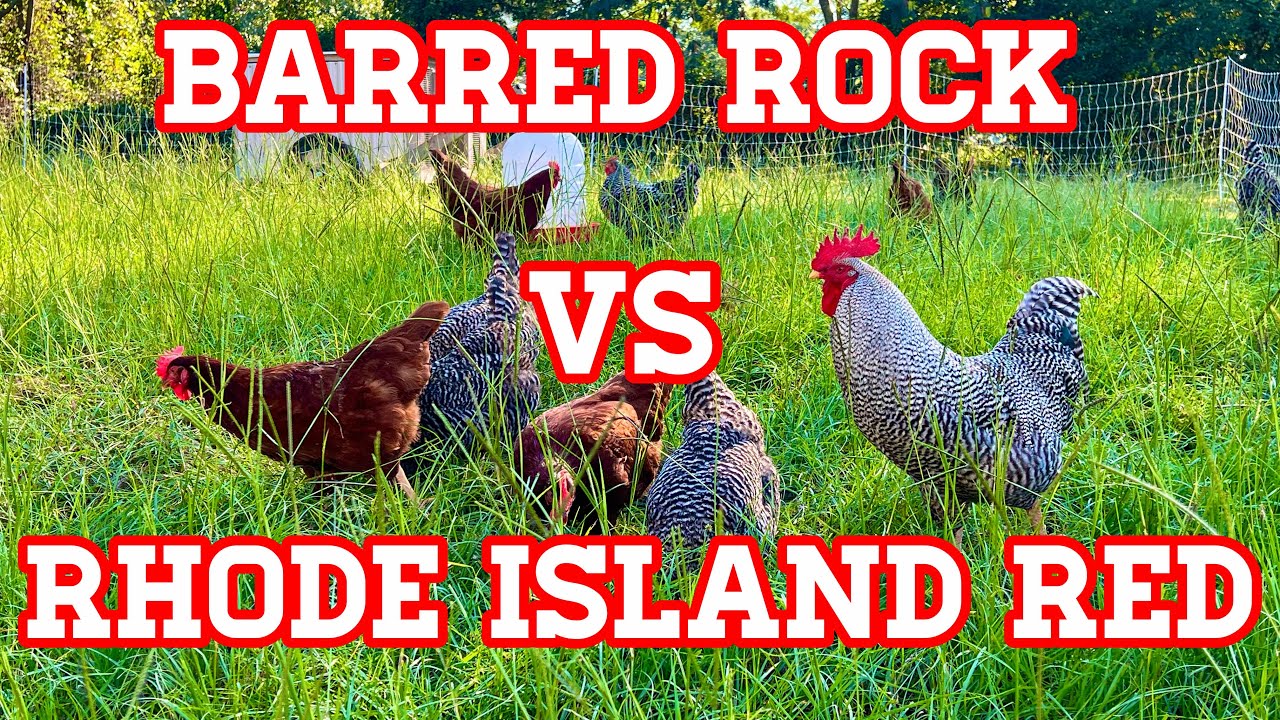Introduction: Rhode Island Reds and Aggression
Rhode Island Reds are a popular breed of chicken known for their beautiful red plumage and excellent egg-laying capabilities. However, there is a common belief that Rhode Island Reds tend to display aggression more than other chicken breeds. In this article, we will explore the truth behind this perception and delve into the factors that may influence aggressive behavior in Rhode Island Reds. By understanding their behavior and implementing effective management strategies, chicken owners can promote a peaceful and harmonious environment for their flock.
Understanding Rhode Island Reds
Rhode Island Reds are a heritage breed that originated in the United States in the late 19th century. They are medium-sized chickens with deep, rusty-red feathers and yellow legs. These birds are highly adaptable, thriving in a wide range of climates. Additionally, Rhode Island Reds are known for their hardiness, making them a favorite choice among backyard chicken enthusiasts.
Aggression in Rhode Island Reds: Myth or Reality?
The notion that Rhode Island Reds are inherently aggressive is often exaggerated and misunderstood. While it is true that some individuals within this breed may display aggressive behavior, it is crucial to understand that this is not a breed-wide characteristic. Just like any other chicken breed, the temperament of a Rhode Island Red can vary depending on various factors, including genetics, socialization, and environmental influences.
Factors Influencing Aggressive Behavior in Rhode Island Reds
Several factors can influence the aggressive behavior of Rhode Island Reds. One of the primary factors is genetics. Some bloodlines within the breed may have a predisposition to be more dominant and assertive. Additionally, environmental factors such as overcrowding, inadequate nutrition, and lack of mental stimulation can also contribute to aggressive behavior. It is important for chicken owners to provide a suitable environment that promotes their chickens’ well-being and minimizes stress.
Studying Aggression: Research on Rhode Island Reds
Researchers have conducted studies to gain a better understanding of aggression in Rhode Island Reds. These studies have found that aggressive behavior in chickens, including Rhode Island Reds, is often influenced by social hierarchy, resource availability, and competition for mating opportunities. By studying the behavior and social dynamics of Rhode Island Reds, researchers hope to provide valuable insights into managing aggression and improving the overall welfare of these birds.
Identifying Aggressive Behavior in Rhode Island Reds
To effectively manage aggression in Rhode Island Reds, it is essential for chicken owners to be able to identify signs of aggressive behavior. Aggressive behaviors can include pecking, chasing, feather plucking, and sparring. It is important to note that some level of pecking order establishment is normal in chicken flocks, but excessive or prolonged aggression can be detrimental to the welfare of the birds involved.
Social Hierarchy and Aggression in Rhode Island Reds
In a flock of Rhode Island Reds, a social hierarchy is established to maintain order and reduce aggression. This hierarchy is commonly referred to as the pecking order, where the dominant individuals have priority access to resources, such as food and water. Aggression can occur during the establishment of the pecking order, but it should eventually stabilize, resulting in reduced aggression. Providing an adequate amount of space, food, and water can help minimize aggression within the flock.
Aggression Management: Tips for Rhode Island Red Owners
Managing aggression in Rhode Island Reds requires proactive measures from chicken owners. Firstly, providing ample space both indoors and outdoors is crucial to minimize crowding, which can contribute to aggression. Ensuring a balanced and nutritious diet is also essential, as malnutrition can lead to increased stress levels and aggression. Additionally, incorporating environmental enrichments, such as perches, toys, and access to natural foraging opportunities, can help alleviate boredom and reduce aggression.
Preventing Aggressive Behavior in Rhode Island Reds
Prevention is key when it comes to addressing aggressive behavior in Rhode Island Reds. Starting with selecting birds from reputable breeders who prioritize temperament can greatly reduce the chances of acquiring aggressive individuals. Proper socialization from a young age, exposing chicks to different environments, and handling them gently can also promote friendly and non-aggressive behavior. Early intervention and addressing any signs of aggression promptly can prevent the behavior from escalating.
Breed-Specific Traits: Does Rhode Island Red Breed Matter?
While some chicken breeds may exhibit certain breed-specific traits, such as Rhode Island Reds being assertive and dominant, it is essential to remember that individual variation exists within every breed. The environment, socialization, and management practices play significant roles in shaping a bird’s behavior. Therefore, it is crucial not to generalize breed-specific behaviors and instead focus on individual assessment and appropriate management techniques.
Aggression in Rhode Island Roosters vs. Hens
It is important to differentiate between aggression in Rhode Island Red roosters and hens. Roosters are more prone to display aggressive behavior due to their natural instincts to protect their territory and assert dominance. However, not all roosters will exhibit aggressive behavior, and individual variation exists. Hens, on the other hand, are generally less aggressive, but conflicts can still arise, particularly during the establishment of the pecking order. Proper management and socialization can help minimize aggression in both roosters and hens.
Conclusion: Rhode Island Reds and Aggression
In conclusion, while there is a perception that Rhode Island Reds tend to display aggression, it is important to understand that this is not a breed-wide characteristic. Aggression in Rhode Island Reds can be influenced by genetics, social hierarchy, and environmental factors. By implementing proper management techniques and addressing aggression promptly, chicken owners can create a peaceful and harmonious environment for their Rhode Island Red flock. It is essential to focus on individual assessment and provide appropriate care to ensure the well-being and happiness of these beautiful birds.





